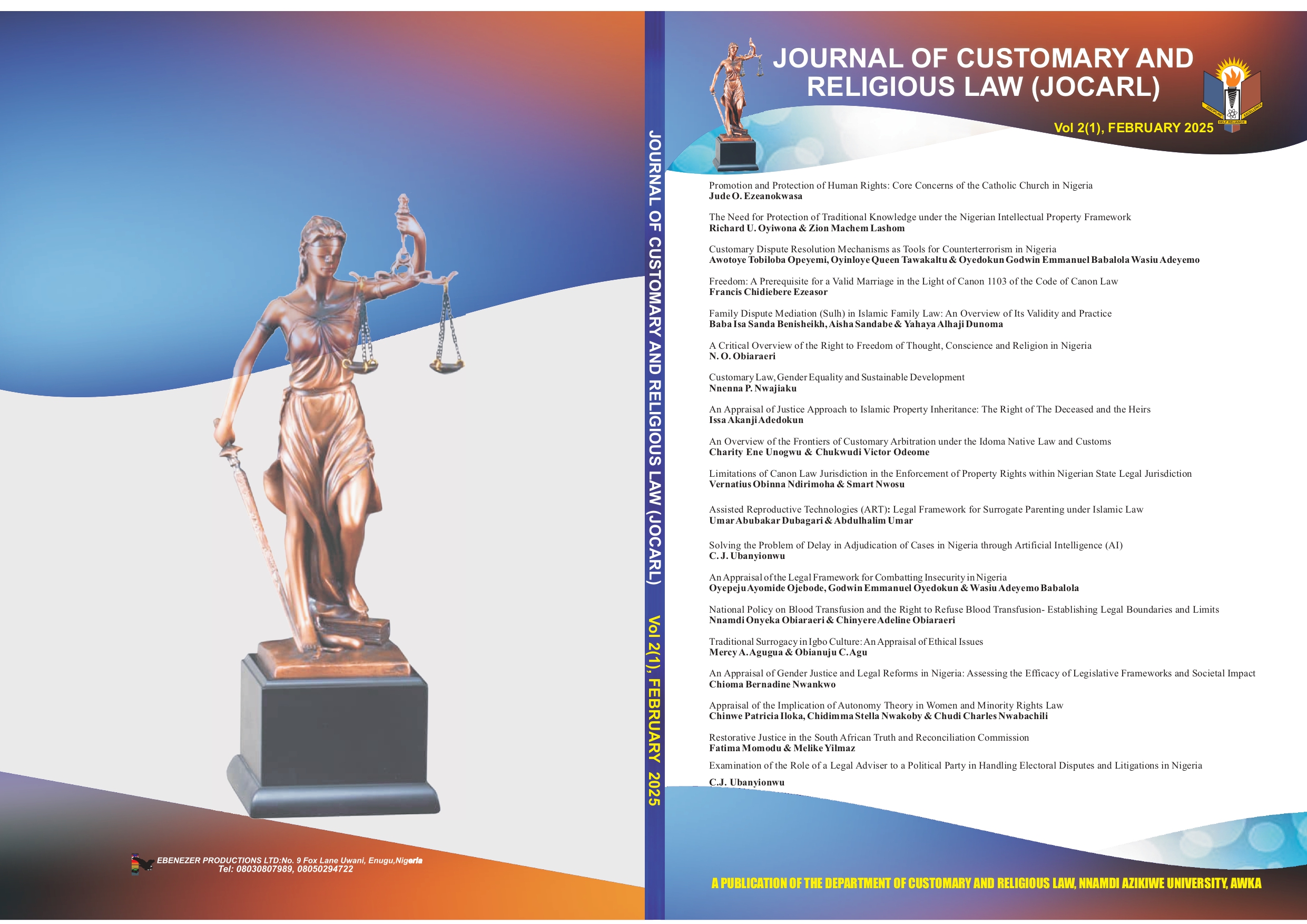Limitations of Canon Law Jurisdiction in the Enforcement of Property Rights within Nigerian State Legal Jurisdiction
Keywords:
Canon Law, Jurisdiction, State Law, Property disputes, Church-State Relations, Ecclesiastical PropertyAbstract
This article examines the contentious area of Church-State relations concerning property disputes, highlighting the jurisdictional boundaries that exist between Canon Law and State Law. The relationship between religious bodies and the state has long been a central theme in legal and philosophical discussions, especially regarding matters of property rights and governance. Historically, the Church exercised considerable authority over its property in accordance with Canon Law, affirming its autonomy grounded
in theological and ecclesiastical principles. With the evolution of secular legal systems, state law increasingly asserted its jurisdiction over property issues related to religious bodies, resulting in situations of overlapping authority and potential conflicts. This article examines the historical context regarding the management of Church property, the evolution of state power, and the points of contention where Canon Law intersects with civil law in property disputes. The main questions addressed are: What are the limits
of Canon Law in cases where conflicts regarding religious property are resolved in secular courts? How do contemporary legal systems manage the equilibrium between the autonomy of religious bodies and the power of governmental authority? What factors do courts consider to determine jurisdiction in cases where religious and civil claims overlap? This study seeks to clarify the complex boundaries related to property disputes between the Church and State by examining the current legal principles. The article aims to
provide insights that may guide future reforms and improve understanding of the impact of property law on the relationship between Church and State in modern societies

